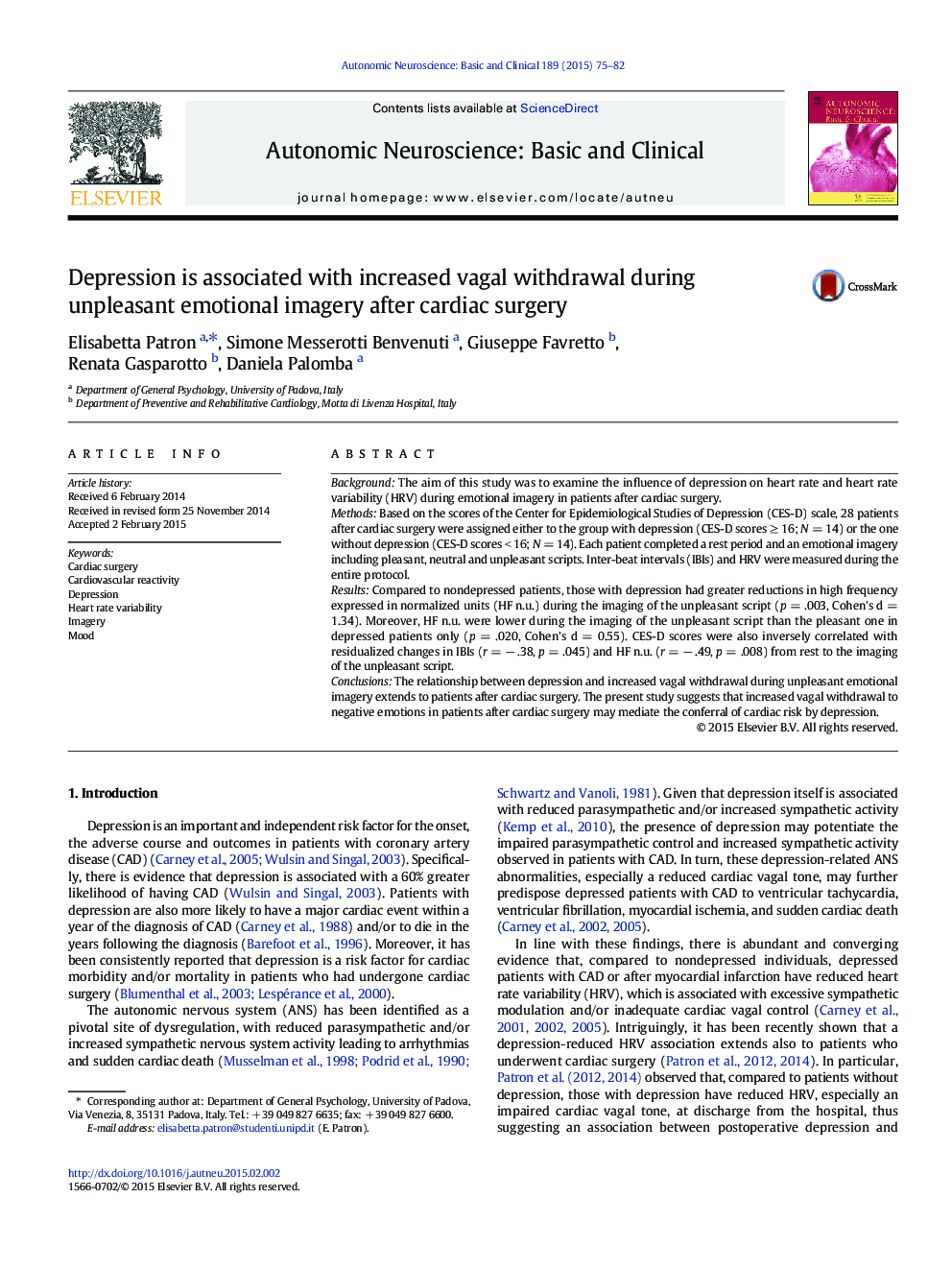| Article ID | Journal | Published Year | Pages | File Type |
|---|---|---|---|---|
| 6003956 | Autonomic Neuroscience | 2015 | 8 Pages |
â¢The impact of postoperative depression on vagal activity to emotions was examined.â¢Depression was associated with increased vagal withdrawal to negative emotions.â¢Increased vagal withdrawal may mediate the conferral of cardiac risk by depression.
BackgroundThe aim of this study was to examine the influence of depression on heart rate and heart rate variability (HRV) during emotional imagery in patients after cardiac surgery.MethodsBased on the scores of the Center for Epidemiological Studies of Depression (CES-D) scale, 28 patients after cardiac surgery were assigned either to the group with depression (CES-D scores â¥Â 16; N = 14) or the one without depression (CES-D scores < 16; N = 14). Each patient completed a rest period and an emotional imagery including pleasant, neutral and unpleasant scripts. Inter-beat intervals (IBIs) and HRV were measured during the entire protocol.ResultsCompared to nondepressed patients, those with depression had greater reductions in high frequency expressed in normalized units (HF n.u.) during the imaging of the unpleasant script (p = .003, Cohen's d = 1.34). Moreover, HF n.u. were lower during the imaging of the unpleasant script than the pleasant one in depressed patients only (p = .020, Cohen's d = 0.55). CES-D scores were also inversely correlated with residualized changes in IBIs (r = â .38, p = .045) and HF n.u. (r = â .49, p = .008) from rest to the imaging of the unpleasant script.ConclusionsThe relationship between depression and increased vagal withdrawal during unpleasant emotional imagery extends to patients after cardiac surgery. The present study suggests that increased vagal withdrawal to negative emotions in patients after cardiac surgery may mediate the conferral of cardiac risk by depression.
